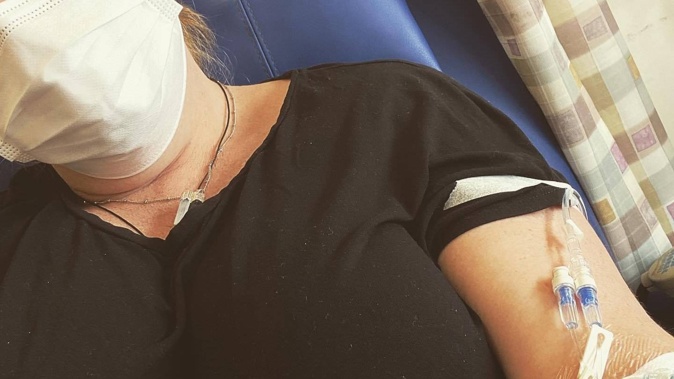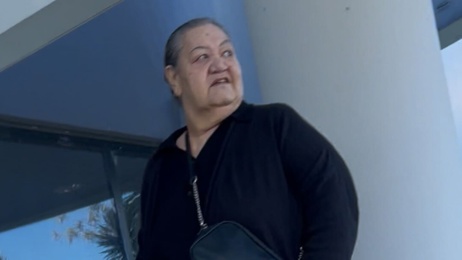
Health Minister Dr Shane Reti has asked officials for advice about cervical cancer screening, including making the programme free for all women.
Cervical screening is the only national screening programme that isn’t free.
Most women have made a “co-payment” to their GP or primary healthcare provider, which ranged from around $40 to $100.
Labour pledged to make cervical cancer screening free ahead of the last election, and that step is supported by Te Whatu Ora - Health New Zealand, health experts, advocates and workers.
National was undecided going into the election. Asked whether free screening would now be considered, Reti said he’d asked for advice “on a range of health priorities, including the suite of national screening programmes”.
“Targeted screening can be incredibly successful in picking up early signs of disease and reducing the likelihood of serious illness developing,” Reti said.
“I am interested in appropriate expansion of the recently commenced HPV testing programme and think that could make a significant improvement to detecting and treating cervical cancer.”
Asked if an “appropriate expansion” meant free screening, a spokesman for Reti said “the minister will need to take further advice from officials before any expansion”.
The comments come after a Herald investigation, published last year, into the care of Pippa van Paauwe, a 39-year-old mother of two who developed Stage 4 cervical cancer after her smear tests were misread, in 2017 and again in 2020.
/cloudfront-ap-southeast-2.images.arcpublishing.com/nzme/ASC7Q3KW5BGPBLA4O4HEQ7SAFM.jpg) Health Minister Dr Shane Reti has sought advice on health reforms, including cervical cancer screening. Photo / RNZ
Health Minister Dr Shane Reti has sought advice on health reforms, including cervical cancer screening. Photo / RNZ
Her cancer may have been detected earlier had a shift to testing for high-risk human papillomavirus (HPV) not been repeatedly delayed. The better testing system was meant to begin in 2018, but began last September.
Professor Bev Lawton, founder and director of Victoria University’s Centre for Women’s Health Research - Te Tātai Hauora o Hine, told the Herald that HPV testing must now be accompanied by a comprehensive plan, which includes lifting HPV vaccination rates and making screening free.
“Yes, we are interested in detecting and treating cervical cancer. But the goal of the programme is to prevent cervical cancer... a strategic plan with access to free screening and immunisation is necessary to prevent avoidable harm and death from cervical cancer,” Lawton said.
“This cancer can be prevented and potentially eliminated, and government and Health NZ need to commit to getting this job done.”
The politics of free cervical cancer screening
Ahead of the election, Labour, the Green Party, NZ First and Te Pāti Māori all pledged to fund free screening, a step expected to cost about $20 million a year.
Act opposed such spending, saying women are already able to seek out low or no-cost screening.
Currently, screening is free only for “priority” groups - women aged 30 and older and who haven’t been tested ever or in the previous five years, Māori, Pasifika, and community service card holders. (Asian women recently lost this entitlement.)
About 80 to 160 New Zealand women are diagnosed with cervical cancer each year and around 50 die from it.
Three-year screening coverage is below the target of 80 per cent, at 68 per cent as of July last year. This drops for Māori (55 per cent), Pacific (54 per cent) and Asian (62 per cent).
/cloudfront-ap-southeast-2.images.arcpublishing.com/nzme/UVO35NMUWJAIZMSHDDCLF5QKVI.jpg) Professor Bev Lawton, founder and director of Victoria University’s Centre for Women’s Health Research - Te Tātai Hauora o Hine, holding the HPV self-test. Lawton and other health leaders want changes to cervical cancer screening, including making participation free for all women.
Professor Bev Lawton, founder and director of Victoria University’s Centre for Women’s Health Research - Te Tātai Hauora o Hine, holding the HPV self-test. Lawton and other health leaders want changes to cervical cancer screening, including making participation free for all women.
Until recently, screening has been done by a speculum examination (smear test), which collects cells from the cervix that are then analysed in contracted laboratories.
Under the new HPV testing programme, women can do a vaginal swab themselves, at a health centre (a clinician will take the swab if preferred) or at home.
It is a better test, allowing the routine screening interval to be extended from three to five years.
Younger New Zealanders can also be protected from cervical and other cancers through HPV immunisation.
The change to HPV testing is expected to prevent at least 25 cancer cases and 10 deaths every year. The actual impact will be bigger, because giving women the option to self-test with a vaginal swab is expected to greatly lift screening coverage.
The incidence of cervical cancer in 2017 was 6.1 per 100,000 and officials hope HPV screening will reduce this below four per 100,000.
Nicholas Jones is an investigative reporter at the Herald. He won the best individual investigation and best social issues reporter categories at the 2023 Voyager Media Awards.
Take your Radio, Podcasts and Music with you









